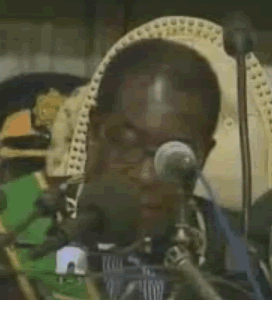Using a machete to cut out infection
Monday, October 6th, 2008 by Amanda AtwoodOver the past few years, life in Zimbabwe has increasingly come to resemble an Ionesco drama. One ridiculous government policy follows another, each more unconscionable than the last. And somehow, the stated purpose of the legislation never seems to gel with what the policy actually accomplishes.
Take, for example, the latest genius move on the part of Reserve Bank Governor Gideon Gono. On Thursday he suspended the RTGS transfer payment scheme, because he had found that it had become “an active vehicle for illicit foreign exchange parallel market dealings, as well as a convenient excuse by sellers of goods and services to overprice their commodities.”
Never mind that it had also become an essential method of organising payments in an environment where bank queues take up literally hours of every working day. The RTGS and Internet banking set up enabled some people to perform transactions without having to join the bank queues – thus saving their own time, and keeping the queues a bit shorter than they otherwise would be.
Suspending RTGS to curb corruption is like using a machete to clean out the infection from your finger. In an economy where people can get to the bank at 6am and still be only number 3,478 in the queue, suspending RTGS makes the simple, basic, ordinary transactions of daily life and business impossible. To add insult to injury, it will put more people into the queues – the people in building societies like CABS, who don’t have cheque books and now need to get bank cheques drawn to pay their bills, and the people who need to deposit these cheques. Transactions at the bank near us had already begun to take longer than they used to – in part because the tellers are on go slow in the hopes that they can earn more overtime. Meanwhile, the kinds of people who were taking advantage of RTGS to profiteer off Zimbabwe’s crumbling economy will just find other corrupt ways in which to make their money – Your cash barons ye shall always have with you.
And yet, despite the outrage of it all, the Sunday Mail refers to the move as one to “bring sanity in the banking sector.” It also warns Zimbabweans that the Reserve Bank will be keeping tabs on everyone who is withdrawing money from the bank every day – to establish “what kind of business they are into.” With transport having gone up to $4,000 one way, bread costing $6,000 and the maximum daily withdrawal only $20,000, might it just be possible that people withdrawing money every day are just into the business of getting to work, having something to eat, and getting home again?










